This article was co-authored by Lisa Bryant, ND and by wikiHow staff writer, Hunter Rising. Dr. Lisa Bryant is Licensed Naturopathic Physician and natural medicine expert based in Portland, Oregon. She earned a Doctorate of Naturopathic Medicine from the National College of Natural Medicine in Portland, Oregon and completed her residency in Naturopathic Family Medicine there in 2014.
There are 19 references cited in this article, which can be found at the bottom of the page.
This article has been viewed 20,252 times.
Acne can sometimes be painful and make you feel self-conscious, but it’s a common condition that many people experience. Luckily, there are some simple things you can try to treat and manage your acne at home. Use a variety of treatments, from cleaning your skin to applying herbal applications, to find what works best for you. With persistent care, your acne will hopefully clear up, but don’t be afraid to reach out to a doctor or dermatologist to find alternative treatment options.
Steps
Maintaining Good Hygiene
-
1Wash your face twice daily with a gentle cleanser. Look for a cleanser that contains products such as benzoyl peroxide, salicylic acid, alpha hydroxy acid, or sulfur since these effectively shrink blemishes.[1] Aim to wash your face in the morning and again before you go to bed. Splash your face with warm water to open your pores so you can clean them better. Apply a facial cleanser using circular motions to break apart dirt and oil stuck in your skin. Rinse your face with warm water before patting it dry with a towel.[2]
- Don’t wash your face more than twice a day since it may make your acne worse.
- Steer clear from cleansers or moisturizers containing natural oils because they could get trapped in your skin and lead to acne.
Tip: Avoid using abrasive facial scrubs since they could irritate your skin more and make your acne flare up.
-
2Avoid touching your face to keep your skin clean. Oil and dirt build up on your hands throughout the day, so wash your hands before you touch your face if you need to. Keep other items, such as phones or helmet straps, off of your face as well since the friction may cause irritation.[3]
- If you get acne on your chest or back, try to wear loose-fitting clothing so the fabric doesn’t rub against your skin as much.
- Try changing your pillowcase every 2–3 days since oils can build up there as well.
Advertisement -
3Don’t pick at or squeeze your blemishes. Picking and scratching at your acne can irritate your skin or cause scarring, so be mindful not to touch your face. Leave your acne alone so it’s able to heal on its own. While it may take a little longer for your blemishes to heal, your skin will stay healthier.[4]
-
4Use water-based cosmetics rather than ones made with oil. Oil-based cosmetics are more likely to clog your pores and cause acne to develop, so do your best to avoid wearing them. Check the labels on the cosmetic products you use to make sure they say “water-based” or “non-comedogenic”, which means they’ll rinse off easily. [5]
- Be sure to clean off any cosmetics you’re wearing at the end of the day since they can trap oil and clog your pores.
-
5Bathe as soon as you can after doing physically-demanding tasks. Whenever you finish exercising or doing a strenuous activity, rinse the sweat off your body so you’re less likely to develop acne. Use shampoo and a body wash that contains salicylic acid to help shrink blemishes on your body and clean off sweat.[6]
- If you have naturally oily skin or hair, try to bathe every day using shampoo and soap.
- If you’re not able to shower right away, try to clean off your face or acne-prone areas with a damp cloth or baby wipe.
Adjusting Your Lifestyle
-
1Incorporate whole grains, fruits, and vegetables into your diet. Opt for whole grains, such as wheat bread, oatmeal, pasta, and barley, since they have more nutrients than processed varieties.[7] Aim to have between 6–8 ounces (170–230 g) of grains daily to ensure you have a healthy diet.[8] Try to include fruits and vegetables into each of your meals so you have about 4–6 cups (300–600 g) each day.[9]
- For example, 1 slice of bread is usually a 1 oz (28 g) serving.
- Whole grains, fruits, and vegetables don’t have added or refined sugars so they’re less likely to cause acne.[10]
-
2Cut the number of processed foods you eat. Do your best to avoid fried and fatty foods, like chips, white bread, pastries, fries, and sugary drinks. Limit how often you get fast food or order out, and opt to cook your meals instead. Use healthy cooking methods, such as baking, pan-frying, or grilling, so your food doesn’t get as greasy.[11]
- Processed foods usually have higher sugar content and more oils so they can make your skin look greasier and make acne break out.
- If you want to have a snack, try to have a piece of fruit or an organic granola bar instead of chips or crackers.
- Chocolate can also make your acne appear worse.[12]
-
3Exercise regularly to keep your body healthy and boost self-esteem. Plan to do 30 minutes of moderate physical activity for 4–5 days out of each week to set up a regular routine. Try exercises such as weightlifting, running, swimming, or biking to stay active. After you work out, be sure to shower or clean off any sweat on your skin so you don’t get any more blemishes.[13]
- Exercise doesn’t directly control your acne, but it boosts your self-esteem and promotes healthier skin so acne is less likely to develop.
- You should also shower after working in a greasy area, such as a kitchen with fryer vats, since the oils can stick to your skin and clog your pores.[14]
- Talk to your doctor about workout plans that will work best for you.
-
4Try relaxation techniques so you don’t feel stressed out. Since stress can directly lead to acne breakouts, try to stay calm throughout your day. If you notice that you’re starting to stress out, try taking a deep breath and holding it for a few seconds before exhaling. You can also try doing light yoga poses, pilates, or meditation to help put your mind at ease.
- If you have trouble managing your stress levels, talk to your doctor to see if they can offer any solutions.
-
5Keep your skin protected from the sun. If you’re going outside, try to wear a hat or put on clothes that completely cover the affected area. Otherwise, apply a water-based sunscreen that has at least 30 SPF to protect yourself from harmful UV rays. Reapply the sunscreen every 2 hours to ensure you have constant protection.[15]
- Sometimes, the sun can cause acne or irritate blemishes that you already have.
- Don’t use tanning beds or lights since they can also affect your acne.
Warning: Avoid using oily sunscreens since they could clog your pores and make your acne appear worse.
-
6Stop smoking to help your acne clear up. Try to quit smoking of any kind since it can cause stress and dehydration, which makes it more difficult for your skin to heal. If you have trouble stopping on your own, talk to your doctor to see if they can offer you any solutions or techniques that can help.[16]
Treating Your Acne
-
1Moisturize with lotion containing green tea to bring down swelling. Look for a water-based lotion that contains at least 3% of green tea extract for the most effective treatment. Use a fingertip-sized amount and gently massage it directly onto your acne. Work the lotion in circular motions until it completely absorbs into your skin. Apply lotion once or twice daily to keep your skin healthy.[17]
- You can buy green tea lotion online or from most drugstores.
- Green tea extract is an antiseptic, which means it helps kill bacteria on your skin that could cause acne.
-
2Use echinacea extract to help kill acne-causing bacteria. Dip a cotton ball or swab in undiluted echinacea extract and wring out any excess liquid. Pat your skin with the applicator pad around your blemishes or on acne-prone skin to effectively get rid of bacteria. Massage the extract into your skin until it absorbs completely. You can use echinacea once a day for effective treatment.[18]
- Buy echinacea extract online or at your local pharmacy.
- You can also take oral echinacea supplements instead of using the extract topically.
- Echinacea stops germs that cause inflammation so acne is less likely to form or be as severe.
-
3Take zinc supplements to make your acne heal faster. Look for a 50-milligram zinc supplement from your local pharmacy to use for your acne.[19] Swallow 1 pill every day so your body gets enough zinc for it to function properly. Continue taking zinc as long as you have acne so you’re able to manage it easier.[20]
- You can get zinc supplements from your local drugstore.
- Zinc helps promote wound healing, which affects how quickly your acne clears up.
- Too much zinc may lead to bloating, diarrhea, or a metallic taste in your mouth.
-
4Apply a bentonite clay mask to dry out your blemishes. Mix bentonite clay with enough water so it forms into a thick paste. Spread the clay over your acne and allow it to dry completely. Use warm water to gently rinse the clay off your skin. Apply a water-based moisturizer after using the mask so your skin doesn’t dry out.[21]
- Bentonite clay contains minerals that help open your pores so you can easily remove dirt and oil.
Warning: Avoid using clay masks more than once per week since it could dry out your skin.
-
5Coat your blemishes with hydrogen peroxide if you have mild acne. Dip a cotton swab in undiluted hydrogen peroxide and rub it directly on your acne. Be sure to cover your blemishes entirely for the most effectiveness. After waiting about 2–3 minutes, rinse the hydrogen peroxide off with warm water so it doesn’t cause irritation.[22]
- Hydrogen peroxide dries up oil in your pores and can kill bacteria on your skin.
- You may get dry skin from using hydrogen peroxide, so use a moisturizer afterwards to keep your skin soft.
-
6Dab tea tree oil on your acne to help your blemishes shrink. Use a lotion that contains at least 5% tea tree oil, or else it may not be as effective. Alternatively, mix 2–3 drops of the oil in 1 tablespoon (15 ml) of a carrier, such as almond or olive oil. Apply the oil directly on your skin with a cotton swab or by hand. Gently massage your skin until the oil absorbs completely. You can use tea tree oil twice each day.[23]
- Tea tree oil has anti-inflammatories that reduce swelling so your blemishes aren’t as noticeable.
- If you get skin irritation or itchiness after applying tea tree oil, you may have a slight allergy to it. Stop using the oil and switch to a different treatment option.
When to Seek Medical Care
-
1See your doctor if you have severe or persistent acne. Some forms of acne can’t be easily prevented with natural remedies, and treating them at home may cause scarring. If you keep breaking out despite using home treatments, talk to your doctor about other treatment options you can try. They may suggest prescription medications or surgical options for you.[24]
- Depending on what’s causing your acne, your doctor may recommend a topical medication (such as a retinoid cream) or an oral medication (such as an antibiotic or hormonal birth control pills).[25]
- Your doctor may also refer you to a dermatologist if your acne is especially severe or hard to treat.
-
2Talk to your doctor if you develop acne suddenly as an adult. If you start breaking out as an adult, especially if you’ve never had acne before, reach out to your doctor about to discuss your condition. Let them know when the acne started and whether you have any other symptoms so they’re able to give you the best treatment.[26]
- If you’ve recently started taking a new medication or using a new skincare product, let your doctor know. Your acne may be a reaction to something you’re using.
- Acne that comes on in adulthood can sometimes be a sign of a hormone imbalance or another medical condition.
-
3Seek medical attention if you have a bad reaction to a skincare product. Sometimes essential oils and other natural skincare products can cause side effects or allergic reactions. Stop using any skincare product and talk to your doctor if you develop a rash, itching or pain, blistering, or peeling skin. Get emergency care if you have symptoms of a severe allergic reaction, such as:[27]
- Dizziness or lightheadedness
- Wheezing or difficulty breathing
- Swelling of the eyes, face, lips, tongue, or throat
Warnings
- Avoid using sugar scrubs, homemade face masks, vinegar, or other home treatments for acne since they have not been tested for safety or effectiveness.⧼thumbs_response⧽
- Contact your doctor if you have severe acne or develop cysts since they could leave scars if you try to treat them at home.[28]⧼thumbs_response⧽
- Don’t use toothpaste to treat acne since it could dry out your skin and cause more irritation.[29]⧼thumbs_response⧽
References
- ↑ https://www.mayoclinic.org/diseases-conditions/acne/in-depth/acne-products/art-20045814
- ↑ https://www.mayoclinic.org/diseases-conditions/acne/diagnosis-treatment/drc-20368048
- ↑ https://www.mayoclinic.org/diseases-conditions/acne/in-depth/acne-products/art-20045814
- ↑ https://www.mayoclinic.org/diseases-conditions/acne/in-depth/acne-products/art-20045814
- ↑ https://www.mayoclinic.org/diseases-conditions/acne/in-depth/acne-products/art-20045814
- ↑ https://www.mayoclinic.org/diseases-conditions/acne/diagnosis-treatment/drc-20368048
- ↑ https://www.health.harvard.edu/blog/acne-what-you-need-to-know-2019010315717
- ↑ https://www.choosemyplate.gov/eathealthy/grains
- ↑ https://www.choosemyplate.gov/eathealthy/vegetables
- ↑ https://www.aad.org/public/diseases/acne/causes/diet
- ↑ https://www.aad.org/public/diseases/acne/causes/diet
- ↑ https://www.mayoclinic.org/diseases-conditions/acne/symptoms-causes/syc-20368047
- ↑ https://www.nhs.uk/conditions/acne/
- ↑ https://www.mayoclinic.org/diseases-conditions/acne/symptoms-causes/syc-20368047
- ↑ https://www.mayoclinic.org/diseases-conditions/acne/diagnosis-treatment/drc-20368048
- ↑ https://www.ncbi.nlm.nih.gov/pmc/articles/PMC2835905/
- ↑ https://www.ncbi.nlm.nih.gov/pmc/articles/PMC6273829/
- ↑ https://www.ncbi.nlm.nih.gov/pmc/articles/PMC4740760/
- ↑ https://www.drugs.com/dosage/zinc-sulfate.html
- ↑ https://www.mayoclinic.org/diseases-conditions/acne/expert-answers/natural-acne-treatment/faq-20057915
- ↑ https://www.ncbi.nlm.nih.gov/pmc/articles/PMC6273829/
- ↑ https://www.ncbi.nlm.nih.gov/pmc/articles/PMC6273829/
- ↑ https://www.ncbi.nlm.nih.gov/pmc/articles/PMC6273829/
- ↑ https://www.mayoclinic.org/diseases-conditions/acne/symptoms-causes/syc-20368047
- ↑ https://www.mayoclinic.org/diseases-conditions/acne/diagnosis-treatment/drc-20368048
- ↑ https://www.aad.org/public/diseases/acne-and-rosacea/adult-acne
- ↑ https://www.mayoclinic.org/diseases-conditions/acne/symptoms-causes/syc-20368047
- ↑ https://www.nhs.uk/conditions/acne/
- ↑ https://www.nhs.uk/conditions/acne/treatment/

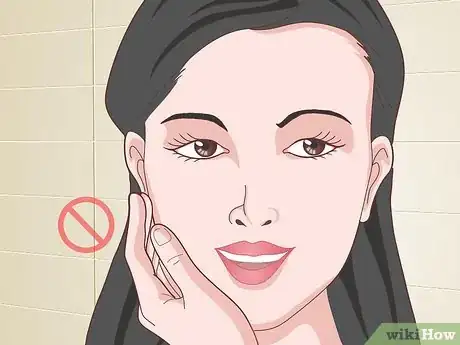


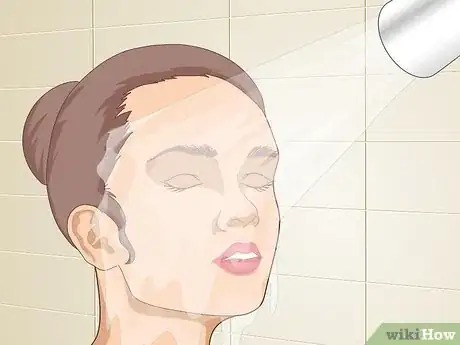
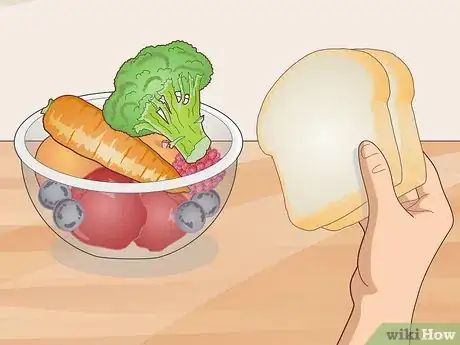


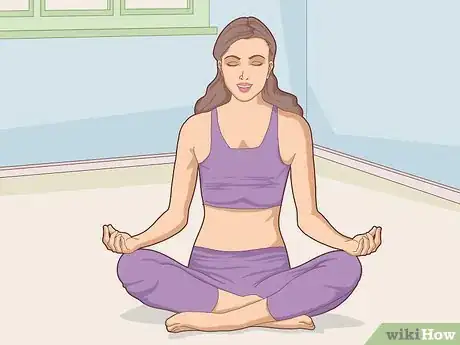




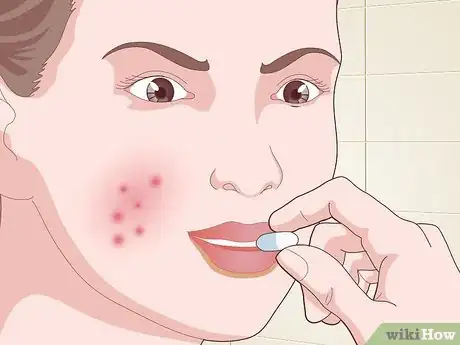
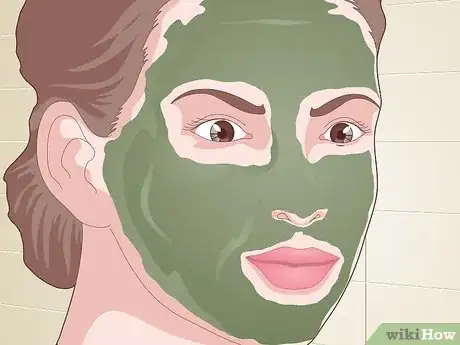
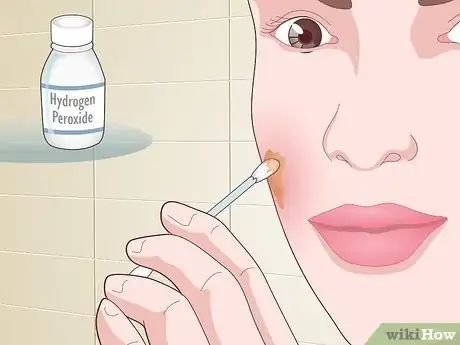
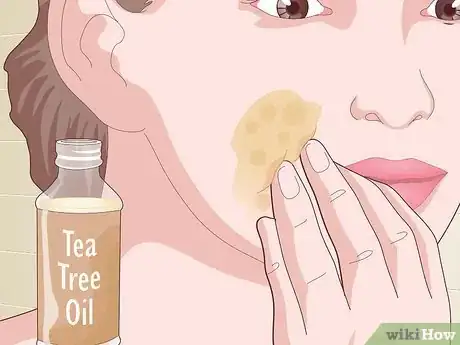

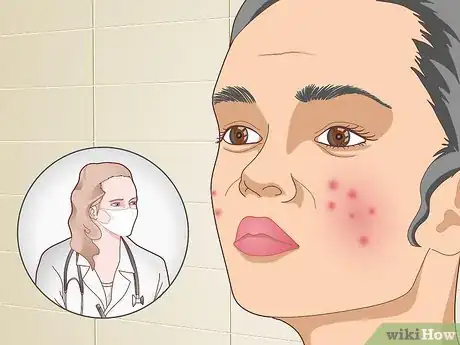
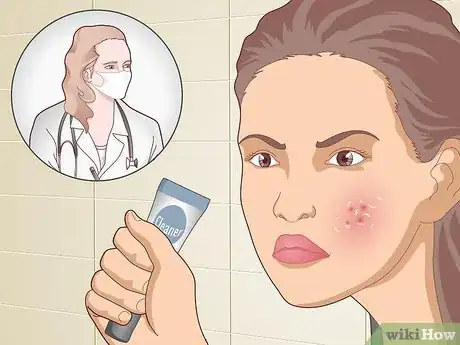
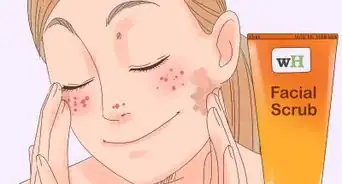

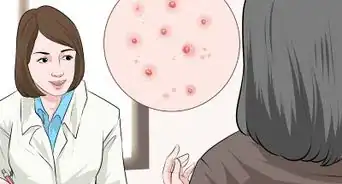


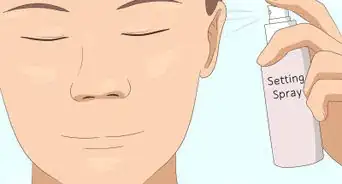


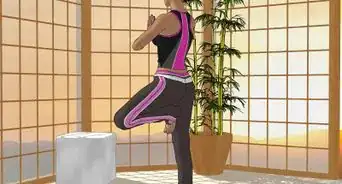
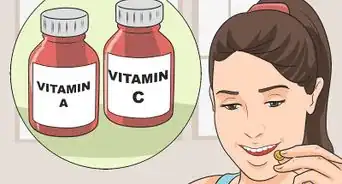


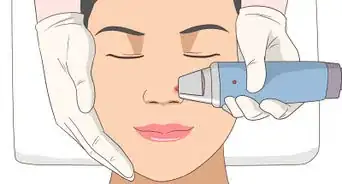








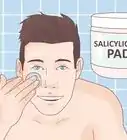
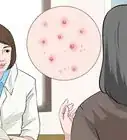




































Medical Disclaimer
The content of this article is not intended to be a substitute for professional medical advice, examination, diagnosis, or treatment. You should always contact your doctor or other qualified healthcare professional before starting, changing, or stopping any kind of health treatment.
Read More...